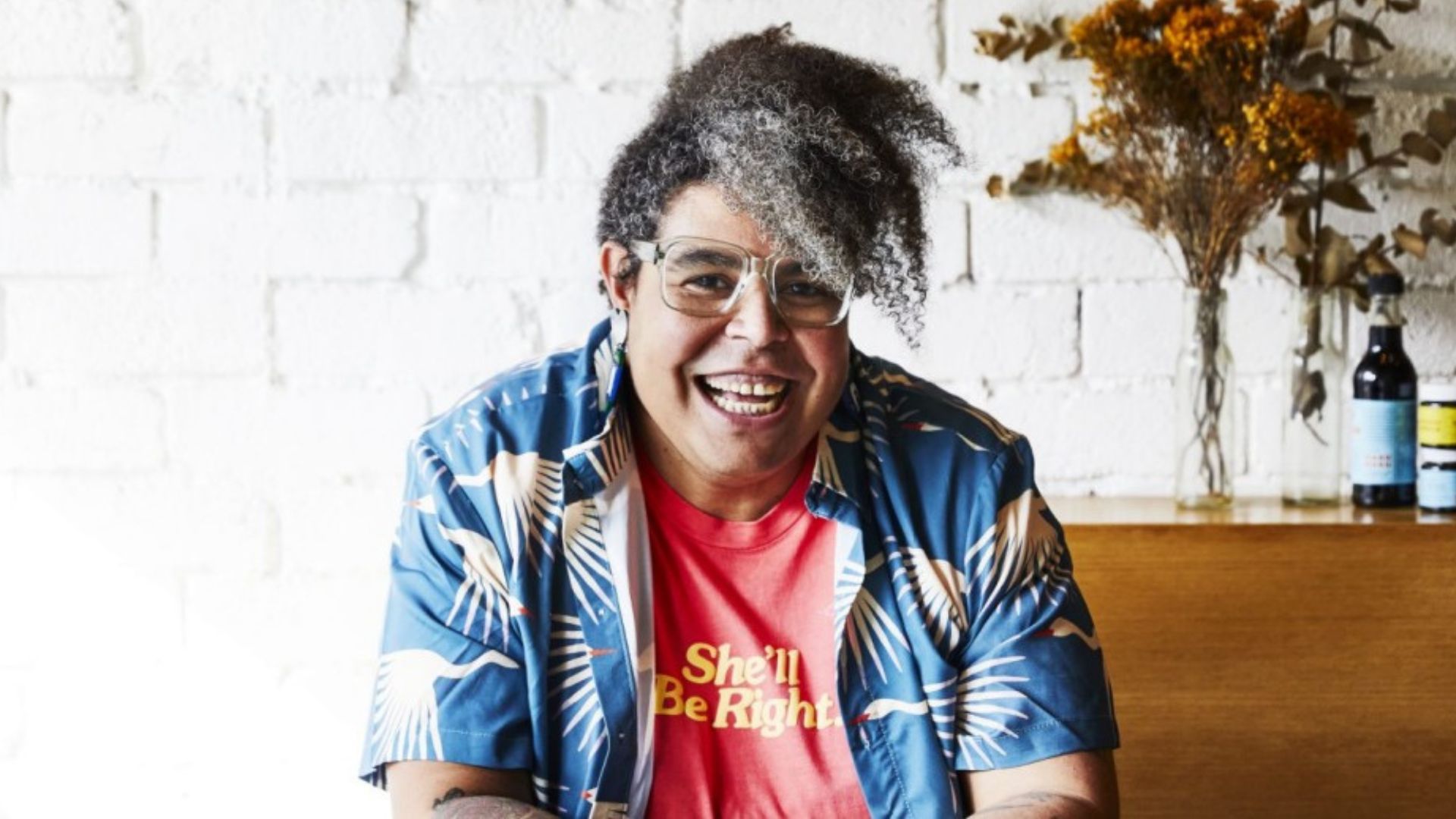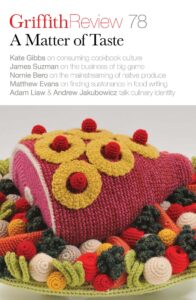In conversation: Nornie Bero and Carody Culver
Nornie Bero is the head chef and business owner of Mabu Mabu restaurant. Originally from Mer Island in the Torres Strait, she has been a professional chef for more than twenty years, and is on a mission to put First Nations ingredients in kitchens across Australia. Nornie and Carody Culver speak about spearheading the return to native produce in this excerpt from Griffith Review 78: A Matter of Taste.

Having worked as a professional chef for more than two decades, Nornie Bero knows her way around a kitchen. But it was growing up on Mer Island in the Torres Strait that taught her the most enduring lessons about food: the value of living in harmony with the land, the versatility of native produce and the creativity inherent in cooking. Now the owner of two renowned Melbourne restaurants, Mabu Mabu and Big Esso, Nornie continues to spread the word about the bounty of indigenous ingredients that Australia has to offer – and how they benefit our palates, our pantries and our understanding of who we are.
Carody Culver: You’re passionate about showcasing native produce – how can a more developed understanding of this produce help us form deeper connections with our food and our natural environment?
Nornie Bero: I think we should be proud of where we come from and be proud of what this country can offer us. We’re unique in our food culture here – we should be embracing it, and we should ask for native produce. This is the main thing that I tell everybody when I do classes – they’ll say, ‘Well, I never see it,’ and I say, ‘Go to your local grocers and ask for it.’ And it is becoming more common – if you go to Preston Market or Prahran Market or Melbourne Market, you can find small packets of native ingredients like karkalla and sea succulents and samphire and saltbush and warrigal greens.
We need to start eating stuff when it’s available and learn that we don’t have to have everything whenever we want it. I change my menu with the native seasons, not with the regular seasons. We live in the city here, and some of the vegetables for sale in supermarkets aren’t ripe yet, but we accept that. We just say, okay, let’s not have a ripe tomato this week. It’s about looking after ourselves as well and what our needs are. In the Torres Strait, we only eat what’s available in a season.
It’s also about learning. We have emu on our menu at Mabu Mabu and we tell our customers that we don’t cook it well done because that’s not how you eat it. And sometimes they say, ‘Well, I don’t want to eat rare meat,’ and we say, ‘Okay, then don’t have it because you’re going to waste it.’ Because if you have it well-done you’re not going to like it and then it’s going to be our fault when really it’s your fault because you wanted it to be overcooked!
We are an amazing multicultural country, and we should be exploring and loving all the flavours that are available to us – I think that native ingredients should be top priority. We should be eating more of the food that comes from Australia. I always say that whatever state you’re from, there are foods that grow fantastically in that state – so grow them!
Excerpt from a conversation between Nornie Bero and Carody Culver published in Griffith Review 78: A Matter of Taste (edited by Carody Culver).
Nornie Bero appears in On the Table: A Matter of Taste alongside Alice Zaslavsky and host Jaclyn Crupi on Friday 4 November 2022 as part of the Wheeler Centre’s Spring Fling: A Short Series of Big Ideas.
Photo: Armelle Habib
Related Posts

Read
Anne-Marie Te Whiu Receives The Next Chapter Alumni Poetry Fellowship
2 Apr 2024

Read
What's on in April: Resident Organisation Round Up
28 Mar 2024

Read
Blak & Bright First Nations Literary Festival returns in 2024
7 Mar 2024

Read
What's on in March: Resident Organisation Round Up
29 Feb 2024

Read
Hot Desk Extract: International
23 Feb 2024

Read
Hot Desk Extract: The Rooms
23 Feb 2024

Share this content